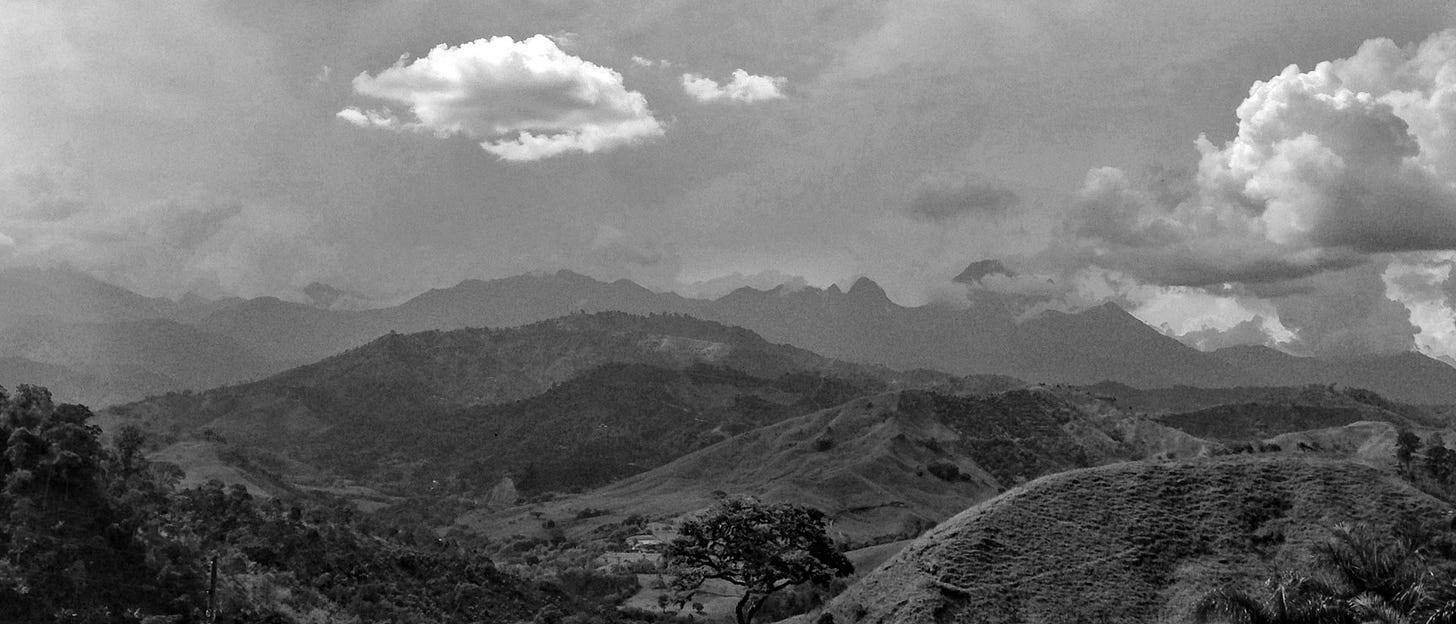Coffee News Roundup: Week Ending May 14th
This week: Verified Living Income, a new proposal for a fairer coffee price; we drank more coffee during the pandemic, unsurprisingly; and another puff piece about Atomo gets torn apart by Sprudge.
Hello and welcome to another Coffee News Roundup, this week brought to you by the inherent dread felt by every food service and retail worker when the CDC (and then many states, Michigan included) announced that vaccinated people needn’t wear masks indoors anymore.
Because, as you might already know, you can’t tell a vaccinated person from a non-vaccinated person, and as the past 18 months have shown, a lot of people will disregard the safety and comfort of others if it means they don’t have to inconvenience themselves.
Many of my local coffee companies have announced that they will be keeping their own mask mandate in place, but this latest announcement will no doubt sow even more confusion. Many people, including the immunocompromised and young children, can’t get the vaccine, and this change means they’re even more vulnerable than they were before.
Anyway, let’s look at the news.
Bellwether, Sustainable Harvest And Heifer Unveil Verified Living Income Model - Via Daily Coffee News
I often write in this Roundup that a solution to the ongoing coffee price crisis is to just pay more for coffee. Usually this is in reference to Nespresso or another gigantic corporation announcing a new program to invest $10,000 in education for producers or something as a way to gain cheap publicity.
How to actually go about paying more for coffee is something I’m not too sure about, being a writer and not an economist or CEO of Nespresso. But it seems as though a major specialty importer (Sustainable Harvest), a coffee roaster manufacturer (Bellwether), and an anti-poverty non-profit (Heifer International) have a plan. Or at least, a proposal for a plan.
The purchasing model, called Verified Living Income (VLI) and based on Heifer’s living income benchmarking methodology, is described on its website as “a new pricing model designed to meet coffee farmers’ livelihood needs. Rooted in transparency, VLI determines the minimum price farmers need to be paid for their coffee to earn a living income.”
A pilot using VLI has been run with 38 smallholder producers from the ASOPEP cooperative in Colombia. The pilot settled on $1.33 as the average cost of production per pound of green coffee and, in order to provide a living income, a Free on Board (FOB) price (what the coffee roaster commonly pays) of $2.24 and a farmgate price (what the producer actually receives) of $1.89.
In a white paper to accompany the pilot, the organizations list a series of recommendations for other groups to follow, from farmers to cooperatives to roasters and non-profits. And Bellwether, at the end, says that it has raised its FOB price with ASOPEP by 20% to meet the $2.24 VLI benchmark, and has committed to using living income-based pricing throughout its supply chain.
Tchibo Study Reveals One-Third Of Americans Have Increased Coffee Consumption During COVID-19 - Via Global Coffee Report
First of all, what constitutes a “study” in 2021 is very loose. This particular endeavor is just a survey of 1159 American’s coffee-drinking habits. Not exactly rigorous or expansive (although with the number of studies we’ve examined that have ~32 participants, perhaps the bar isn’t that high).
Secondly, how is the fact that a third of Americans have increased their coffee consumption during a worldwide pandemic a revelation? We haven’t been able to go anywhere or do anything! My consumption of literally everything has increased. Ice cream? Increased. Potato chips? Increased. Binge-watching mid-level crime dramas starring vaguely recognizable mid-level movie stars? You better believe that’s increased.
My coffee consumption has definitely increased. The only thing that hasn’t increased is my car’s gas usage, because, again, I haven’t gone anywhere for over a year.
Similarly, another “study” from another European coffee roaster that also just surveyed a few thousand people, has found that “more than two-thirds of survey takers missed the simple act of meeting in a café for a coffee and a chat.” Again, not that surprising.
McDonald's Is Changing Its Coffee Cups To Promote The Covid-19 Vaccine - Via CNN
Because people who don’t like being told what to do are definitely going to get vaccinated because McDonald’s told them to.
PBR And Entenmann's Want You To Try Pairing Hard Coffee And Donuts - Via Food & Wine
Before you get too excited, no the donuts are neither coffee-flavored nor alcoholic. Basically this is just a merchandizing mashup between Pabst Blue Ribbon beer and Entenmann’s donuts, but one that doesn’t actually include the PBR cold brew itself—as Food & Wine puts it, “due to legal restrictions, these boxes are BYOB—they don't come with a can of PBR Hard Coffee.”
The T-shirt itself is actually pretty cool, and you do get a box of donuts and [edit: it’s sold out. never mind!]
More Headlines
Honduras Again Cuts Coffee Shipment Projection Due To Coffee Leaf Rust Damage
SOS Colombia: How Coffee Lovers Can Support The Colombian Crisis
The Week In Corporate Coffeewashing
Remember Atomo? They’ve been in and out of the news a bunch over the past few years, mostly just touting their non-coffee coffee stuff without really producing anything (it’s still not for sale).
This week, Bloomberg Green (the greenwashing arm of Bloomberg News) ran another puff piece about the tech startup which, again, doesn’t have a product. It’s grim stuff, with the founders describing themselves as “the Tesla of coffee” even though that’s maybe not the best thing to be; indiscriminately linking all coffee producers to deforestation; and accusing those same producers of fraud because sustainability standards aren’t unified.
Sprudge, to their great credit, ran a scathing editorial in response to the Bloomberg piece. The editorial, which I encourage you all to read, has some choice things to say about Atomo in general and the Bloomberg puff piece in particular:
To blanket assert that all coffee is “linked to deforestation” aside from Atomo is, in our opinion, disingenuous and wrong. Bloomberg should, in our opinion, consider retracting or modifying this claim—we feel it's frankly wild they published it to begin with.
It’s a really forthright piece, and says basically everything I would have said myself. So hey, go read it.
Is Coffee Good For You?
Are metal straws good for you?
The whole plastic straw debate has been going on for years now, and the most common replacement when companies have switched is the metal straw. They’re reusable, you see? Aside from being difficult for some disabled people to use, they’re also gross and dangerous, as this article in Sprudgepoints out.
Meanwhile, also in Sprudge, although coffee might culturally be assumed to be a good hangover remedy (see: every film and TV show ever), that might not actually be the case.
What To Read
White Electric Reopens As Rhode Island’s Only Cooperatively Run Coffee Shop by Ella Fassler
This Chicago Cafe Is Using Coffee Profits To Send People To Therapy by Jake Wittich
What Is A Cortado? by Liz Clayton
Until next week, drink good coffee. And if you live in one of the US states that just basically lifted their mask mandate, tip your barista extra—they’re probably dealing with a lot right now.






